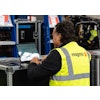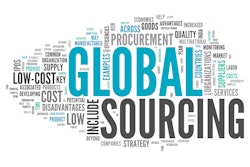
The food and beverage industry is one of the most high-stakes industries in manufacturing -- one issue with quality can cause a domino effect so large that it takes down the reputation, and the revenue, of a brand. While regulations from the FDA help ensure food safety and quality for consumers, the always-evolving changes can be difficult for manufacturers to keep up with.
In light of these challenges, many food manufacturers are turning to an enterprise resource planning (ERP) system to help stay up to date on the regulations and ensure safe production and delivery of food and beverages products for consumers.
While ERP is a useful tool across industries, with 95% of businesses reporting that ERP implementation led to business process improvement, the benefits are particularly useful for the unique needs of the food industry. On top of increased visibility, it offers features for traceability, predictive stock management and more that are designed to boost quality control and efficiency in day-to-day operations.
The power of ERP in food manufacturing
ERP software connects and streamlines processes and data across an entire organization, centralizing financials, sales, inventory, operations and industry-specific requirements together into one single platform. With the addition of this solution, manufacturers can benefit from a centralized business management system, acting as a single source of truth and ultimately providing manufacturers with the knowledge and data needed to ensure product quality and compliance.
So, what does this mean for food manufacturers specifically?
Increased adherence to compliance and regulations. The food industry is known for its strict regulatory compliance with a constant evolution of emerging regulations that keep food manufacturers vigilant to updates. ERP software can simplify the task of ensuring compliance, enhancing transparency, and facilitating efficient stock management across the supply chain by providing increased visibility into every aspect of product development through the centralized system.
Improved data management. A major selling point of ERP software lies in its centralized database. Whether in warehousing, logistics, marketing, sales or quality control, ERPs provide every facet of a business seamless access to data to help boost company-wide efficiency. For food manufacturers specifically, this streamlined data facilitates the monitoring and tracking of perishable stock across the supply chain, allowing manufacturers to more easily minimize waste and manage excess inventory.
Increased product consistency and quality. Maintaining consistent product quality in food manufacturing is paramount, especially given the potential impact on future sales and consumer loyalty. Quality management, however, is a time-consuming endeavor that can take up precious time and resources. To help alleviate this burden on the employees, ERP provides manufacturers with the ability to easily track temperatures, humidity, flow rates, and other factors within and across plants to streamline production and reduce scrapped products.
Improved warehouse efficiency and reduced inventory cost. With warehouse and inventory management features, manufacturers can streamline warehouse operations with the ability to efficiently scan crates, boxes or entire pallets directly into inventory and swiftly check them into their designated location. ERP provides real-time tracking of available ingredients and finished goods, as well as their exact whereabouts, boosting efficiency and reducing inventory costs with real-time supplier monitoring.
Maximized ROI. In a study of companies implementing ERP, 85% had a projected timeline for ROI, and of that group, 82% achieved ROI in their expected time. With increased efficiencies, reduced operating costs, quicker production and more customers, manufacturers will benefit from company-wide operational improvements and boosted revenue.
The power of ERP in food manufacturing lies in its ability to centralize and streamline business operations, from compliance adherence and improved data management to ensuring consistent product quality, reducing inventory costs, and maximizing return on investment. With ERP, food manufacturers serve to gain a comprehensive business management system that not only meets industry-specific requirements but also facilitates increased efficiency, reduced costs, and enhanced revenue.


















